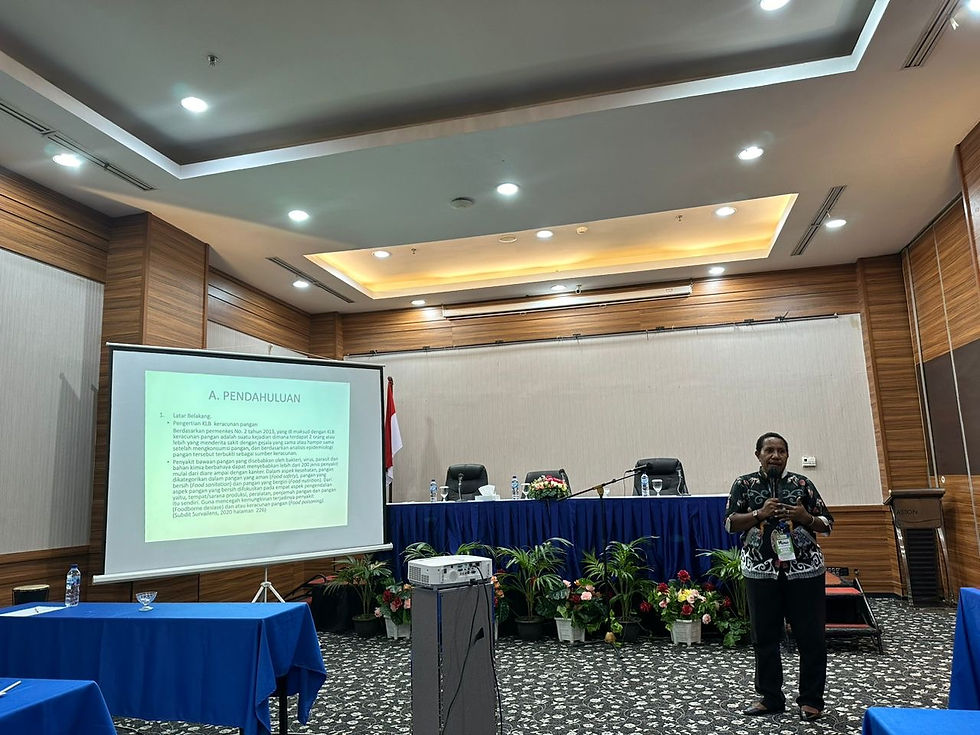[SAFETYNET Indonesia] 1st Session of Surveillance Analysis Training For Papua’s Surveillance Officer
- Thi Thuy Linh Pham
- May 21, 2024
- 2 min read
Health workers in Papua face significant challenges in analyzing surveillance data. The region is particularly vulnerable to various public health issues, including infectious diseases like malaria, tuberculosis, and HIV/AIDS. Statistics show that Papua has a higher incidence rate of these diseases compared to the national average. Moreover, Papua's geographical conditions and lack of infrastructure exacerbate these difficulties, hindering the capabilities of health workers in comparison to their counterparts in western Indonesia. Therefore, improving the epidemiological analysis skills of health workers in Papua is crucial for several reasons.
To address this need, SAFETYNET, in collaboration with the Indonesian Ministry of Health, planned a surveillance analysis training workshop in Papua. The training aimed to enhance the capacity and knowledge of surveillance officers in the region. Titled "On the Job Training of Surveillance Analysis for Surveillance Officers in Jayapura-Papua," the workshop was held successfully from May 13-17, 2024. It saw participation from all six provinces in Papua Island: Papua, Papua Barat, Papua Barat Daya, Papua Pegunungan, Papua Tengah, and Papua Selatan.
The workshop combined lectures with hands-on tasks, allowing participants to analyze their own provincial data to derive actionable public health insights. Key attendees included Dr. Lisa, Rizqy Aulia, and Rendy from the Surveillance and Quarantine Health Directorate, Dr. Marina, a senior technical officer from SAFETYNET and a trainer for the Epidemic Intelligence Program (EIP) Malaysia, Dr. Noorhaida, a former Ministry of Health Malaysia official and EIP Malaysia trainer, and Fadhil Armen, a resident advisor for SAFETYNET Indonesia and Advanced FETP graduate.
The workshop featured six main lectures along with group work tasks:
1. Introduction to Basic Surveillance
2. Surveillance Situation in Indonesia
3. Surveillance Data Analysis
4. Health Situational Analysis
5. Emerging Infectious Disease Situation in Indonesia
6. Formulating Recommendations for Public Health Action
These lectures equipped participants with essential knowledge and skills for conducting surveillance analysis.
The workshop concluded on May 17, 2024, with representatives from the Ministry of Health. Participants expressed their enthusiasm and eagerness for the next session, which is scheduled for September 2024.
1. Participant from all provinces in Papua Island
2. Surveillance introduction lecture by Dr. Noorhaida
3. Situational Analysis by Dr. Marina
4. Data Analysis exercise using line-listing data
5. Representative of group presented their situational analysis
6. Closing of workshops
7. Distributed the certificate to participant representatives
8. Distributed the certificate to participant representatives











Comments